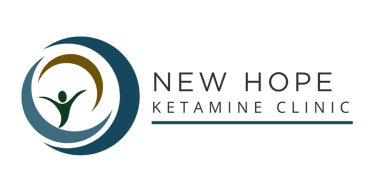Address: 21660 W Field Pkwy, Suite 301, Deer Park, IL 60010

Breaking the Silence
Confronting Mental Health Stigma for a Healthier Society
Admin
3/7/2024
In today’s world, the shadows of mental health stigma loom large, casting doubt, fear, and discrimination upon those who are most vulnerable. Despite significant progress in understanding and treating mental illness, societal attitudes remain a formidable barrier to seeking help and support. It’s time to confront these stigmas head-on, acknowledge their damaging effects, and work together to create a more compassionate and inclusive society.
The Harsh Reality of Mental Health Stigma:
Mental health stigma is pervasive, touching the lives of millions worldwide. It manifests in various forms, from subtle judgments and misconceptions to outright discrimination and social exclusion. Individuals facing mental health challenges often find themselves silenced by shame and fear, hesitant to speak out or seek help due to the stigma attached to their condition.
Associated Issues and Consequences:
The consequences of mental health stigma are far-reaching and profound. It perpetuates a cycle of silence and shame, preventing individuals from accessing the support and treatment they desperately need. Stigmatizing attitudes can lead to social isolation, reduced opportunities for employment and education, and even discrimination within healthcare settings. Moreover, the fear of being labeled as “crazy” or “weak” discourages open dialogue about mental health, perpetuating harmful stereotypes and misconceptions.
Emerging Treatment Options:
Breaking down mental health stigma requires a multifaceted approach that addresses societal attitudes, promotes education and awareness, and fosters empathy and understanding. Here are some possible solutions to confront mental health stigma:
1. Education and Awareness:
Providing accurate information about mental health disorders, their causes, symptoms, and treatments can help dispel myths and misconceptions. Educational campaigns, workshops, and community outreach programs can play a crucial role in raising awareness and reducing stigma.
2. Promoting Open Dialogue:
Encouraging open and honest conversations about mental health can help break down barriers and create a supportive environment for those affected. Peer support groups, storytelling initiatives, and public forums provide platforms for individuals to share their experiences and challenges without fear of judgment.
3. Empathy and Compassion:
Cultivating empathy and compassion towards those facing mental health challenges is essential in creating a more inclusive society. Empathetic listening, validation of emotions, and offering support without judgment can make a significant difference in someone’s mental health journey.
4. Challenging Discrimination:
Advocating for policies and legislation that protect the rights of individuals with mental illness is crucial in combating discrimination. Addressing systemic inequalities and promoting equal access to healthcare, employment, and education can help reduce the social and economic burden of stigma.
References:
– National Alliance on Mental Illness (NAMI): https://www.nami.org/
– Mental Health America (MHA): https://www.mhanational.org/
– Active Minds: https://www.activeminds.org/
– Bring Change to Mind (BC2M): https://bringchange2mind.org/
– Each Mind Matters: https://www.eachmindmatters.org/
– Time to Change: https://www.time-to-change.org.uk/

Possible Solutions: Confronting Stigma with Compassion
Recent years have witnessed the introduction of novel treatments, expanding the toolkit for addressing depressive disorders:
1. Ketamine Infusion Therapy: Ketamine, traditionally known as an anesthetic, has shown promising results in rapidly alleviating depressive symptoms. Administered through intravenous infusion, ketamine works on different neurotransmitters than traditional antidepressants.
2. Spravato (Esketamine) Nasal Spray: A derivative of ketamine, Esketamine, sold under the brand name Spravato, is administered as a nasal spray. This innovative approach provides a more accessible and convenient option for individuals seeking rapid relief from depressive symptoms.
3. Transcranial Magnetic Stimulation (TMS): Transcranial Magnetic Stimulation (TMS) is a cutting-edge and non-invasive treatment option for depression that harnesses the power of magnetic fields to stimulate nerve cells in the brain. This innovative therapy has shown promise in cases where traditional approaches may have proven less effective. By precisely targeting specific areas of the brain associated with mood regulation, TMS offers a novel avenue for individuals seeking relief from depressive symptoms without the use of medication.
Conclusion:
Mental health stigma is a pervasive and damaging force that affects individuals, families, and communities worldwide. By confronting stigma with compassion, empathy, and understanding, we can create a society where mental health is viewed with acceptance and support. Together, let’s break the silence, challenge stigmas, and build a healthier and more inclusive world for all.
Health Care Professionals' Resources
Sign Up To Receive The Latest Updates On Ketamine Infusion Therapy And Spravato Nasal Spray For Mental Health




Contact Us
21660 W Field Pkwy
Suite 301
Deer Park, IL 60010
Phone:
847-232-4045
Fax:
847-232-4042
Email:
info@newhopeinfusion.com
Treatments
Disclaimer
© 2024. All rights reserved.
Pages
Hours of Operation
Monday 9:00am- 5:00pm
Wednesday 9:00am- 5:00pm
If you or someone you care about is currently facing a crisis, we strongly urge you to contact the National Suicide Prevention Lifeline at 800-273-8255 or call 911 for immediate assistance.
